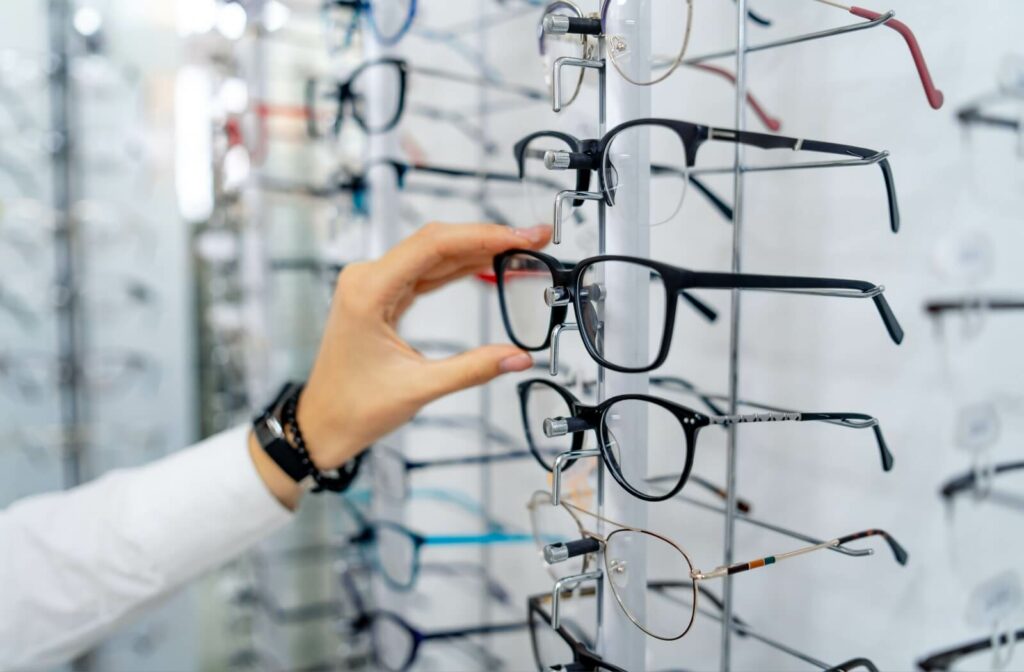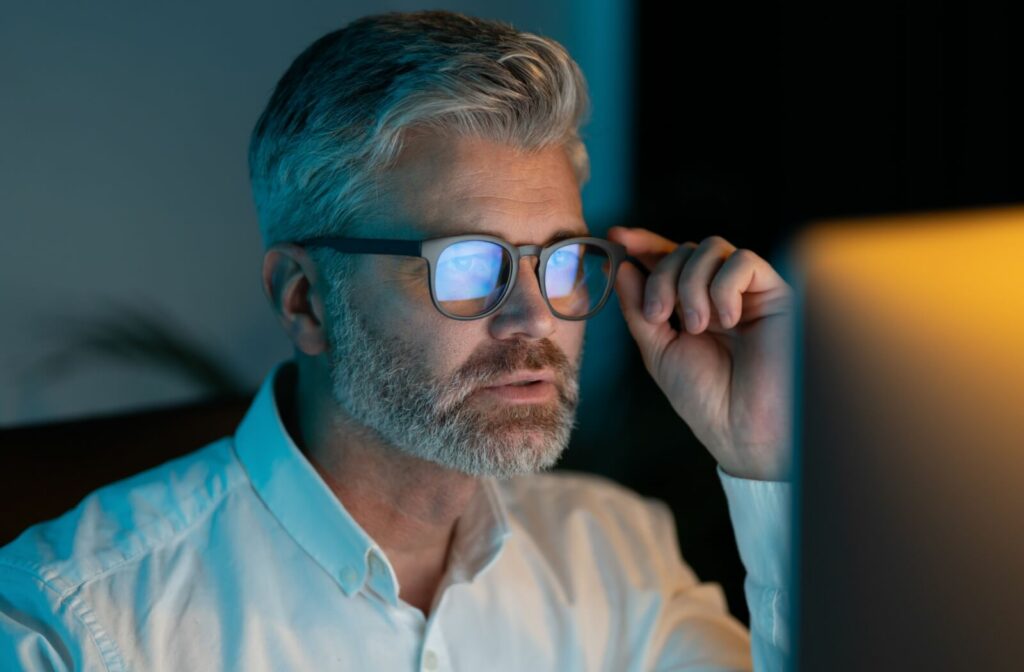If you’ve ever wondered whether you can wear blue light glasses all day, the short answer is yes—you absolutely can! In fact, for many people, wearing them throughout the day helps reduce digital eye strain, supports a more natural sleep cycle, and makes screen time more comfortable.
We live in a digital-first world, where screens are practically unavoidable. From laptops and tablets to smartphones and LED lighting, exposure to artificial light—especially blue light—is constant. Over time, this exposure can impact your eye comfort, sleep quality, and even your overall well-being. So, what exactly are blue light glasses, how do they work, and when should you wear them? Let’s break it down.
What Is Blue Light?
Blue light is part of the visible light spectrum and has a shorter wavelength, which means it emits more energy. The sun is our biggest source of natural blue light, but artificial sources—like LED lights, TVs, and digital screens—also emit it in significant amounts.
Blue light exposure isn’t all bad. In fact, natural blue light from the sun helps regulate your sleep-wake cycle and boosts alertness during the day. But artificial blue light is more constant and concentrated—especially since we’re exposed to it for hours at a time through our devices. This difference in intensity and timing is what leads to problems.
How Does Blue Light Affect You?
Your body is wired to respond to blue light. Exposure during daylight hours helps boost your attention, mood, and cognitive function. But once the sun sets, our bodies are designed to shift into rest mode.
The trouble starts when artificial sources of blue light—like your phone, computer, or LED lighting—trick your brain into thinking it’s still daytime. This suppresses melatonin production (the hormone responsible for sleep), making it harder to fall asleep or stay asleep.
Over time, this disruption in your body’s natural rhythm (also called the circadian rhythm) can lead to:
- Difficulty falling or staying asleep
- Daytime fatigue
- Mood fluctuations
- Reduced concentration
- Higher risk of anxiety and depression
Even if you don’t notice these issues right away, long-term exposure without protection can make screen time more uncomfortable and taxing for your eyes.
What Are Blue Light Glasses?
Blue light glasses are specially designed eyewear that filters or blocks high-energy blue light from reaching your eyes. They’re different from regular prescription or reading glasses because they often include:
- Blue light-filtering lenses
- Anti-reflective coating to reduce screen glare
- Subtle tints to improve contrast and reduce eye strain
- Lightweight, comfortable frames for all-day wear
These glasses work by limiting the amount of artificial blue light your eyes absorb—especially helpful if you spend long hours in front of screens. Some models even come with added UV protection and scratch-resistant coatings, making them a practical choice for everyday use, whether you’re indoors or outdoors.

When Should You Wear Blue Light Glasses?
Blue light glasses can be worn any time of day, but they’re especially helpful during or after long periods of screen use. Here are some ideal times to wear them:
During work hours
If your job involves staring at a computer, blue light glasses can reduce eye fatigue and make screen time easier on your vision. Many people find they experience fewer headaches and less dry eye after regular use.
In the evening
Wearing them before bed can help minimize melatonin suppression, improving your sleep quality. This is especially helpful if you like to unwind with a book on your tablet, watch TV in bed, or catch up on emails at night.
While using artificial lighting
Even when you’re not using screens, LED and fluorescent lights emit blue light—so wearing your glasses indoors can still offer protection, particularly in offices or classrooms with bright overhead lighting.
There’s no harm in wearing them all day, especially if they help your eyes feel more comfortable and your sleep more restful. In fact, many people incorporate them into their daily routine just like regular glasses or sunglasses.
How Else Can You Protect Your Eyes from Blue Light?
While blue light glasses are a great tool, there are a few other habits that can help protect your vision:
- Practice the 20-20-20 rule: Every 20 minutes, look at something 20 feet away for 20 seconds. This helps your eyes relax and refocus.
- Adjust your screen settings: Use features like night mode, eye comfort mode, or reduce screen brightness when possible. You can also install blue light-filtering apps on your devices.
- Improve your posture: Keep your screen at eye level and maintain a comfortable distance (about 16–30 inches) from your eyes to reduce neck strain and eye fatigue.
- Use proper lighting: Avoid working in overly bright or dim environments. Balanced lighting helps prevent your eyes from straining unnecessarily.
Together with blue light glasses, these strategies can significantly reduce screen-related eye strain and promote better visual comfort throughout the day.
Ready to Find Out If Blue Light Glasses Are Right for You?
If you’re considering blue light glasses and want expert guidance, The Vision Place in San Antonio is here to help. Our team can evaluate your lifestyle and eye health, then recommend the perfect pair of glasses for your needs.
Book your eye exam today and take the first step toward clearer, more comfortable vision—no matter how long your screen time lasts.


